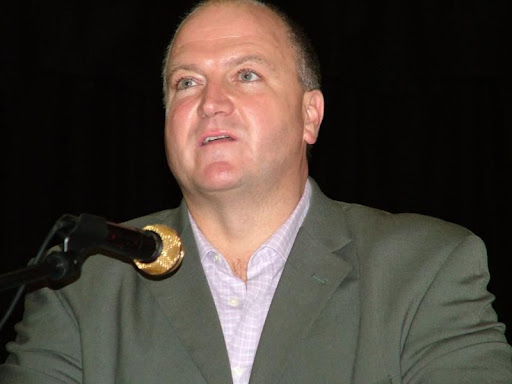
Not here Sedley, sorry.
Today's
Telegraph shed's a little light on the
ridiculous idea from appeal court judge Stephen Sedley, that every man woman and child should be placed on the national DNA database.
He includes the 32 million or more visitors to the country each year, who in the dreams of Sedley will now have a unique form of welcome to the country, by being swabbed and added to a database of potential criminals. He is apparently unaware that in some of the countries whose citizens choose to visit the UK, the concept of a presumption of innocence still holds the whip hand in determining the relative rights between the individual and the state.
It transpires that:
Unusually - perhaps uniquely for an Appeal Court judge - Lord Justice Sedley is a former member of the Communist Party.
Source: The Daily Telegraph
A little further digging reveals that his father, also in the legal profession, was a lifelong communist who died in 1985.
The understanding that even in the eighties, when the true evil nature of communist regimes was becoming understood, that Sedley was at the least still close to those who were supportive of the aims of the self same regimes that Regan and Thatcher were beginning to fight against, begins to explain his cavalier attitude to individual liberties. It helps us understand why he ruled that a twelve year old, profiled but ruled innocent of any crime, must have his DNA profile held on the national database for the rest of his life; for one of Sedley's background the simple claim of 'necessity' from the state would probably be enough to trump any right to individual dignity.
Supporters of the judge may point to his support for the Human Rights Act. Above and beyond the extra wealth the Act has brought to the legal profession, it should also be remembered that many of the communist states that he probably at one time supported also had similar declarations in their systems of law. The problem was that the simple act of enumerating these rights brought with it the scope to limit and place boundaries round them, and it is clear that in the minds of many from the left that a claim of 'necessity' by the state should carry significantly more weight than I find comfortable in considering the need to abrogate such rights.
On a more practical level, there have been a few back of a fag packet calculations floating around, about the cost of such a scheme, generally coming out at about an initial £10 billion, and then £3 billion per year thereafter. This probably goes some way to explain why our government, which has abandoned any real pretence about caring about our liberties, is only luke warm on another authoratarian measure that would normally be right up it's street.
It should be pointed out that these figures are based on the cost of about £70 to process each test, and would come on top of the already spiralling costs of the ID card and National Identity Register scheme.
As someone with a background in genetics I can't really imagine there would even be any significant scope for the benefit of the scale of Sedley's scheme seeing the £70 figure drop. The processes are already highly automated, and at several key stages rely on natural processes that will only ever happen in their own sweet time, regardless of ministerial exhortations to hit targets for faster processing.
What is more likely is that the cost per sample would increase with the inevitable vast scaling up of the bureaucracy that would certainly be entailed. Furthermore, it is likely that the reliability of, and thereby the confidence in the system would fall off with potentially disastrous results. One only has to look at the well meaning project increasing cancer screening, where the inability to maintain the high quality of those involved in the process, and the delegation of skilled tasks to basic technicians has led to some tragic misdiagnoses.
All in all, this proposal needs killing more firmly, and indeed the campaign to get rid of data on innocent people needs to get underway, now that Sedley has ignited the debate.
Yes, a few guilty people will escape detection, but the number of cases where the DNA of someone
previously considered innocent of any crime will be much lower than the already quite small headline total figures on the number of cases solved using
any DNA evidence.
This is clearly not a good thing, but the dignity of the individual and the right to live one's life with minimum of interference from the state comes first.
As for Sedley, I could never support McCarthyite purges of those whose political past have shown remarkably bad judgement from the bench, but it important sometimes that we try to understand their past, and concern ourselves with the motivations that may lay behind unacceptable proposals carefully wrapped in a tissue of reasonable sounding words.
Update 1:00AM: Having found broad agreement from the good burghers of the village on Sedley's position, an interesting point was raised over such political interventions by senior judges.
Should, God forbid, another case regarding the retention of DNA evidence ever come before Sedley again, is there any hope whatsoever of a fair trial? He's happy for an innocent 12 year old's DNA to reside on a state database for life, so what hope is there for anyone else?
Any decent, fair minded judge would clearly have to withdraw from such a case having made such a clearly partisan position public.
The big question is whether such concepts as fairness and decency really mean anything to authoritarian scum like Sedley, and perhaps that's the biggest worry of all.















 RSS Feed - Main Blog
RSS Feed - Main Blog






